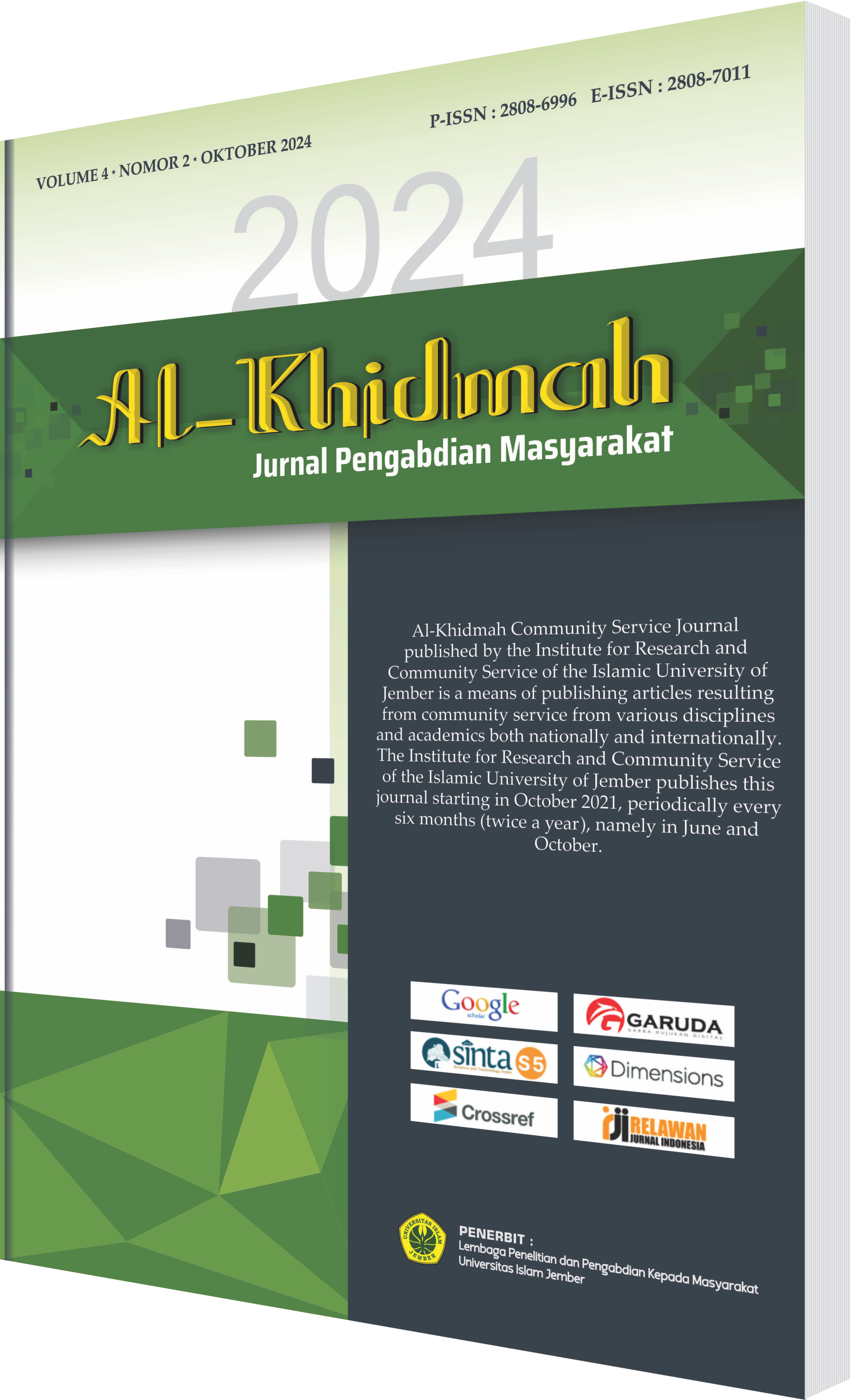Pelatihan Pembuatan Komposter di Desa Dukuh Mencek Kecamatan Sukorambi Kabupaten Jember
DOI:
https://doi.org/10.56013/jak.v4i2.3271Keywords:
Trash Can, Organic Waste, ComposterAbstract
Nowadays, there is a lot of organic waste that is not managed properly and appropriately. This happens in Dukuh Mencek Village, Sukorambi District, Jember Regency, every day it produces an abundance of organic waste but it does not receive serious handling by the village government or related parties. This rubbish is usually thrown into the river or piled up behind the house, causing an unpleasant odor. Therefore, handling is needed, namely managing organic waste into compost through organic waste bins or composters, which can later bring economic benefits to the manager. Organic waste bins or what are called composters are special disposal places for organic waste that can directly process waste into compost. This research aims to reduce the waste problem that is currently occurring in the village and provide education to the local community that processed organic waste can be useful and bring economic benefits. This management is carried out by providing appropriate innovative technology in the form of making organic waste bins as a means of breaking down waste into compost. The method used is to start with the initial steps of preparing the necessary materials, preparing the tools used, and modifying the trash can. The results of the activity of making organic waste bins, namely composers, were successfully implemented by Collaborative Real Work Lecture (KKN) 160 students in Dukuh Mencek Village, Sukorambi District, Jember Regency. This organic or compost bin is implemented on village agricultural land next to the catfish pond which is managed by the local village PKK women. Organic waste that has been processed takes around 14 days to 30 days to become compost.
Downloads
Downloads
Published
How to Cite
Issue
Section
License
Copyright (c) 2024 Anis Rofi Hidayah, Bagas Suryandaru, Alek Alek, Muhammad Fajar Zein

This work is licensed under a Creative Commons Attribution 4.0 International License.





